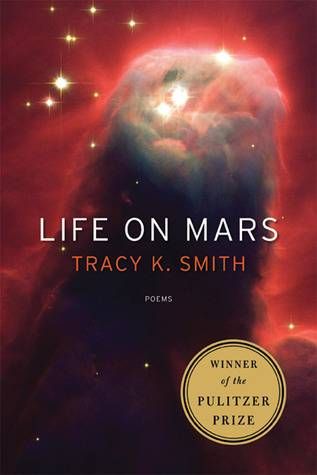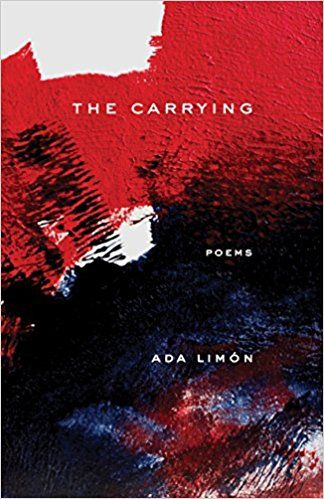I love beginnings, especially opening poems. From their images to mood to content, opening poems often help me decide if I want to read a book at that moment. I’ve purchased many collections after devouring first poems in bookstore aisles and corners. Some recent treasures I brought home after sampling their first pieces: My Darling from the Lions by Rachel Long at City of Asylum and As She Appears by Shelley Wong at White Whale in Pittsburgh; Poūkahangatus by Tayi Tibble at Sundog Books in Seaside, and Golden Ax by Rio Cortez at Exile in Bookville in Chicago.
|
|
In My Trade Is Mystery: Seven Meditations from a Life in Writing, Carl Phillips writes about the role of the first poem in a poet’s first book: “It’s a bit like the literary equivalent of attending one’s first debutante ball (or at least as I can imagine such things, never having attended one) — a similar deliberateness and purposefulness. It’s how we announce ourselves to potential strangers for the very first time.” In this essay, the first poems I mention aren’t exclusively from debuts. Inspired by Phillips, let’s flirt with fitting metaphors for the opening pieces in second and third collections and so forth. Can they all be dances? I love the word promenade.
Looking at the constellation of poems I’ve taped to my bathroom mirror and memorized, three of the six titles consist of opening poems. That’s 50%, and, in my mind, three makes a pattern. The trio, Richard Siken’s “Scheherazade,” Tracy K. Smith’s “The Weather in Space,” and Ada Limón’s “A Name,” gleam at the top of the paper cluster. There they glimmer in all of their poignant beginningness and require the slight tilt of my neck, an angle I associate with awe: how I gaze at birds, clouds, trees, mountains, sunsets, and the moon. An unintentional and interesting arrangement I only recognized one evening while the electric toothbrush whirred over my molars when my eyes wandered their way to the poems as my eyes tend to do.
My obsession with opening poems may have begun with Siken’s “Scheherazade,” the first poem I memorized back in graduate school. When I learned about the assignment, I knew exactly which piece I intended to commit to memory. It touched me in ways that resist articulation. When meeting this formative opener, I was enrolled in undergraduate creative writing workshops and English courses, and I thought, How does a poet do that? The attention-gripping command of that opening — “Tell me about the dream where we pull the bodies out of the lake” — winded me, and the yearning in the words and the dropped lines waxing across the page stunned me.
 |
Serendipitously (or because it has lodged so deeply in me), I revisited Louise Glück’s introduction to Siken’s debut collection, Crush. In the Foreword, the Nobel Prize–winning poet and author of The Wild Iris quotes Emily Dickinson’s well-known and oft-referenced lines about poetry, which were some of the first sentences I included while beginning this draft and that magic prompted me to leave them in. Often, opening poems have a way of rendering me speechless, of making me feel those sensations unparaphasably described by Dickinson and felt by Glück: “If I read a book and it makes my whole body so cold no fire can warm me, I know that it is poetry. If I feel physically as if the top of my head were taken off, I know that it is poetry. These are the only ways I know it. Is there any other way?”
 |
In “The Weather in Space” from Life on Mars, which won the Pulitzer Prize for poetry in 2012, Smith begins with a question then another: “Is God being or pure force? The wind / Or what commands it?” Drawn to intricate and unanswerable questions, this speculative poem delving into uncertainty, grief, and astonishment captured my heart instantly. I observe the space between the lines, perhaps because space is in the title, and I — with Phillips’s essays, especially “Silence,” fresh in my brain — ponder how space invites wondering, allows the mind to wander, leads us to questions, leads us to poems.
 |
For nearly four years, the longest my beloved and I have spent somewhere together, we’ve lived in coastal Mississippi, where my relationship with poetry has deepened. Another thing about living somewhere for almost a handful of years: I learned the names of things, beautyberries and bayous and cedar waxwings. Maybe this sparked my fascination with Limón’s “A Name,” the single sentence poem launching The Carrying about Eve giving animals, including a “nightingale” and “fallow deer,” their names, a poem full of solitude and longing. And I can’t help but think about how here, in this place that has begun to feel familiar, I learned to identify a red-tailed hawk, learned how to tell the difference between their wings and a turkey vulture’s.
I hope this moves you to reach for the above works and the opening poems that wowed you. If you find yourself craving more time with, as Dickinson so aptly illustrated, body-chilling and head-offing first pieces, I compiled a list of some that I’ve lingered on again and again, pages I’ve adorned with dog-ears, sticky flags, hearts, marginalia, and the ghost of a paperclip:
- “Blueprint” by Ama Codjoe from Bluest Nude
- “Dream Diary” by Yanyi from The Year of Blue Water
- “Home” by Safiya Sinclair from Cannibal
- “Medical History” by Nicole Sealey from Ordinary Beast
- “Music” by Hala Alyan from Four Cities
- “Normal Everyday Creatures” by Paige Lewis from Space Struck
- “Postcolonial Love Poem” by Natalie Diaz from Postcolonial Love Poem
- “Sonnet for the Barbed Wire Wrapped around This Book” by C. T. Salazar from Headless John the Baptist Hitchhiking
- “summer, somewhere” by Danez Smith from Don’t Call Us Dead
- “Threshold” by Ocean Vuong from Night Sky with Exit Wounds
Also, if you adore poetry, stay a little, or a lot, longer to check out 10 of the Best Poetry Collections of 2022 and In Appreciation of the “Notes” Section in Poetry Collections by yours truly, Poetry to Get You Through the Winter, and our poetry archives.
Source : Marveling Over Opening Poems









